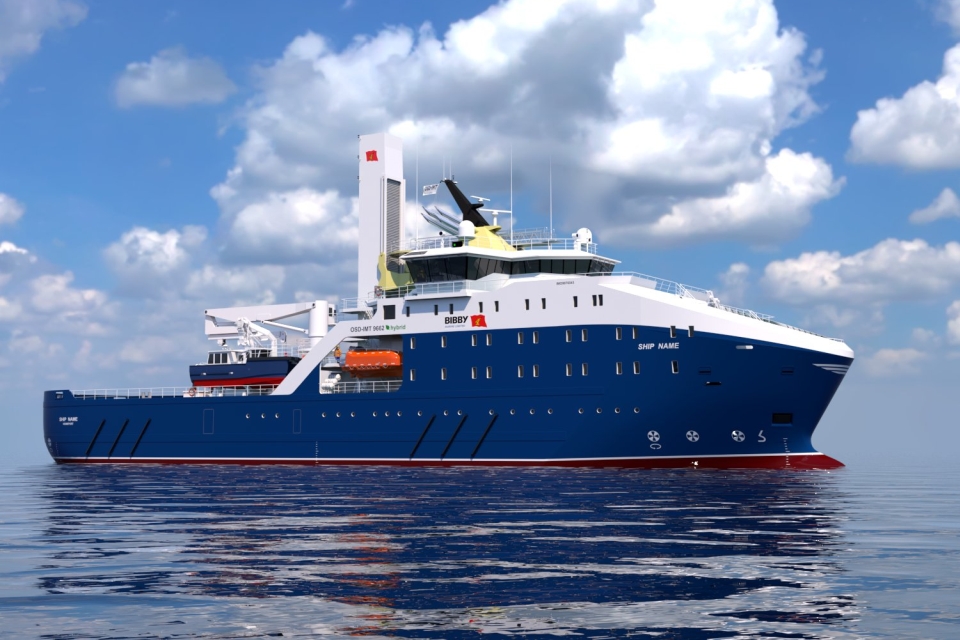Longitude Engineering will support a consortium led by vessel owner and operator Bibby Marine for the design of a zero-emission electric service operation vessel (eSOV). It will operate in the UK and European offshore renewables markets.
The vessel project has recently been awarded GBP 20 million in UK government funding under the Zero Emission Vessel and Infrastructure (ZEVI) competition. The ZEVI project aims to accelerate the development of clean maritime solutions, and specifically of battery electric vessels and charging infrastructure.
Having developed the concept for the consortium, Longitude Engineering are developing the design to approval in principle level for verification of the energy storage system and methanol system philosophy. This phase also includes design development and support for shipyard pricing.
‘Whilst development of our renewable energy infrastructure increases, decarbonising the wider project value chain is also of critical importance to further move the dial on our race to net zero,’ says Dean Goves, maritime design director at Longitude. ‘Studies have been conducted to explore the carbon footprint of marine operations in offshore wind construction. This project is the next step – engineering a solution. It has the opportunity to set the tone for future enhanced decarbonisation of vessels involved in offshore operations.’
Also read: Damen presents SOV that can charge at offshore wind turbines
Batteries and methanol dual-fuel
The eSOV is based on Longitude Engineering’s OSD-IMT9605 design. The vessel will be powered by a hybrid 20MWh battery system and dual-fuel methanol generators for back-up and offshore charging capability.
The vessel will provide ultra-low emission support to offshore construction, operations and maintenance activities in the offshore renewables sector in the UK and elsewhere in Europe, in particular supporting Europe’s growing offshore wind market.
‘This project is the natural progression of our decarbonisation journey, as we aim to operate a low or no carbon emission vessel by 2026. Designed in the UK, the vessel will be a game-changer for our industry, and we are delighted to work alongside some of the market leading contractors and suppliers on this project, such as Longitude,’ adds Nigel Quinn, Bibby Marine CEO.
The consortium behind the eSOV is made up of Port of Aberdeen, ORE Catapult, Kongsberg, DNV, Shell, Liverpool John Moores University, Bibby Marine and Longitude. In 2021, Longitude acquired ship design bureau OSD-IMT, which was being divested by Dutch Damen Shipyards.








